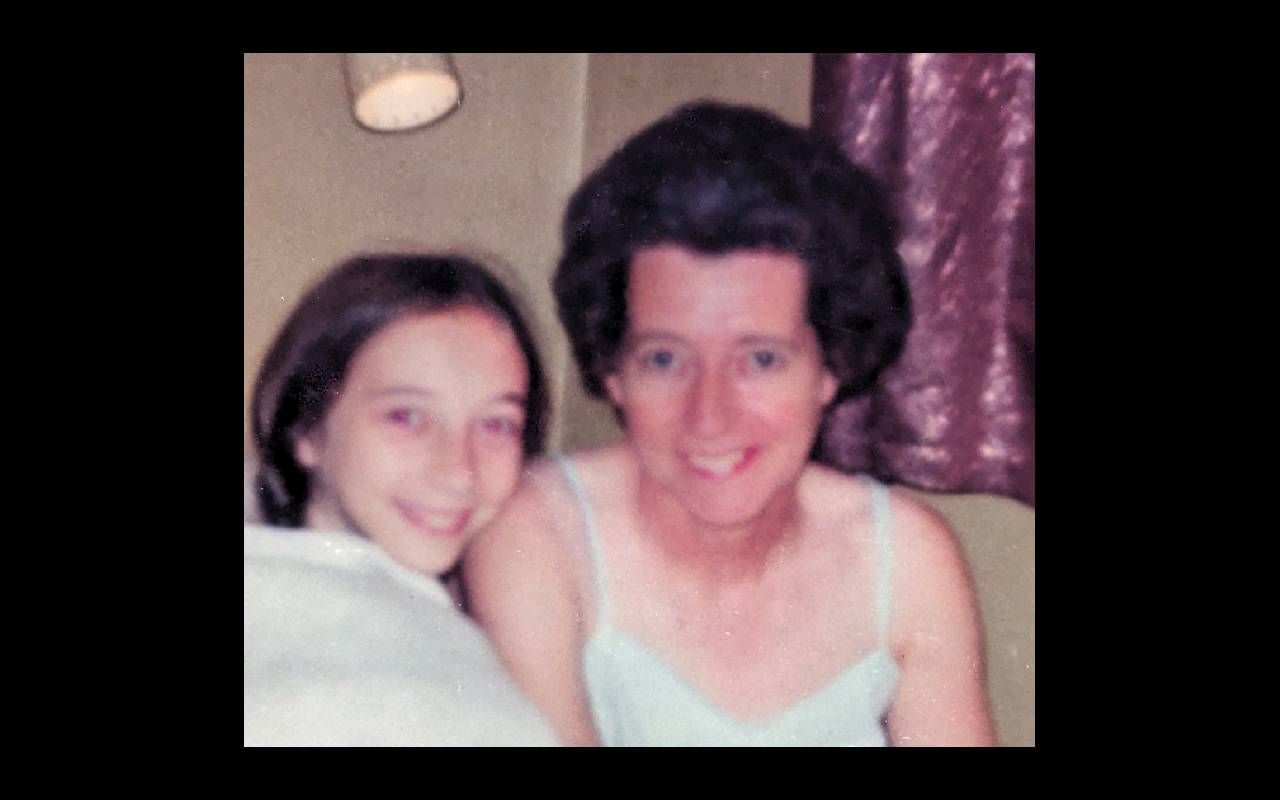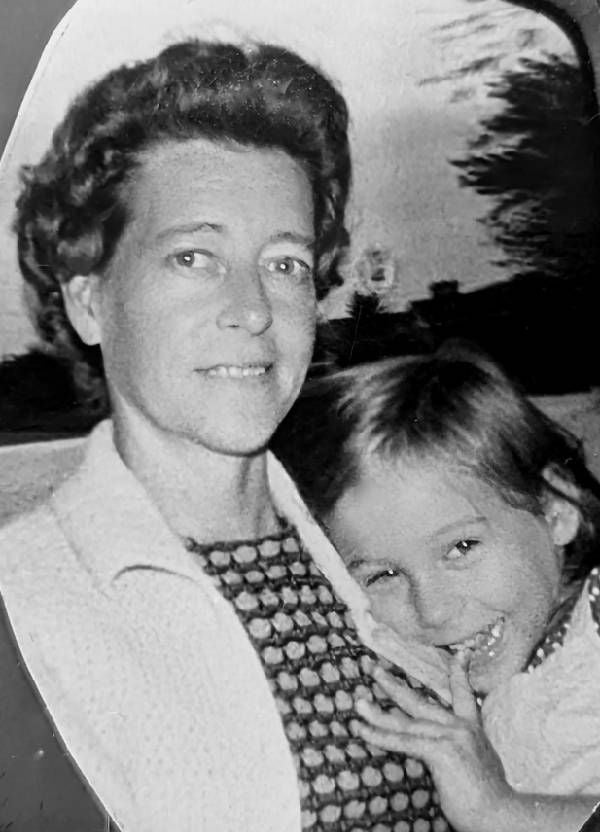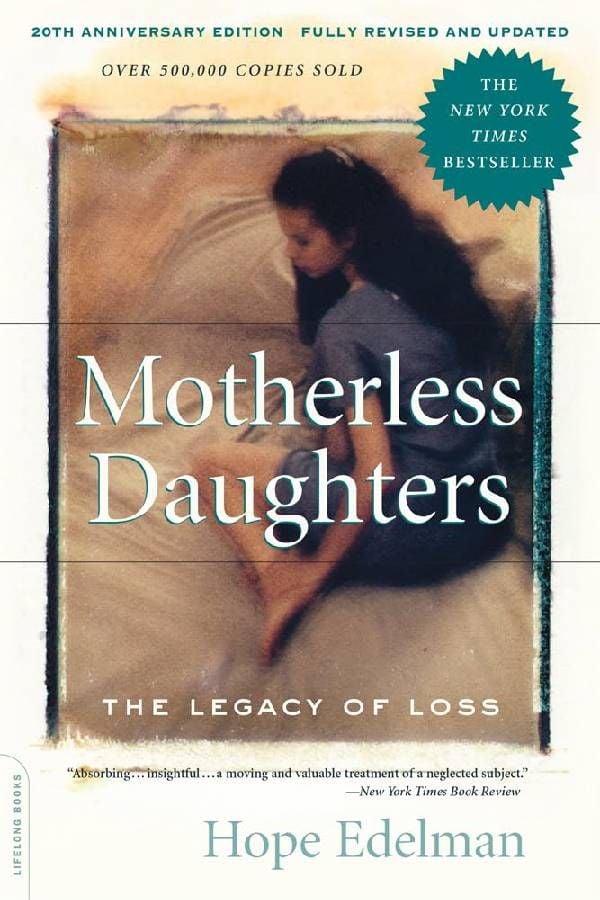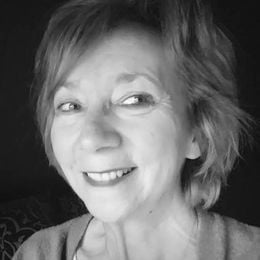Childhood Interrupted: When a Mother Dies Too Soon
A talk with author Hope Edelman about the experience of losing a mother.
The first time that it happened I was twenty-six years old. I was having lunch in the staff room when suddenly my heart began to hammer in my chest like an out-of-control freight train and when I heard a friend's distant "Are you okay?" it became even worse.

As my throat began to close, I thought I was having a stroke and my vision flickered. But in the quiet of the hallway with a worried friend by my side, the feeling disappeared as quickly as it had arrived. We made jokes about too much caffeine and returned to our sandwiches.
The psychiatrist kept returning to the fact that my parents had died within two years when I was only 17 and that I'd been caregiver to both.
But this was the beginning of a terrifying pattern that would happen again and again with increasing severity. After a series of tests at the doctors' office found nothing physically wrong, I was given a prescription for benzodiazepines (highly addictive medication intended for short term relief only) and for me, an additional stressor since this wasn't even addressing the root problem – and also, what was the problem?
I fretted that I was losing my grip on reality which obviously made things worse. In between attacks, I anticipated and dreaded the next one as though I could feel the hot breath of a predator on the back of my neck.
My doctor eventually suggested a psychological assessment and an intimidating appointment was arranged complete with a social worker observing behind a one-way glass window. During a lengthy conversation, the psychiatrist kept returning to the fact that my parents had died within two years when I was only 17 and that I'd been caregiver to both.
Living With Suppressed Grief
At the time, making this connection seemed ludicrous to me especially since it was nearly a decade since they had passed. But the social worker was adamant that the anxiety was being fueled by suppressed grief and suggested that I would benefit from 'talking to someone.' And she was right.
Recently, scholarly studies examining the impact of losing a parent early in life now seem to indicate a vulnerability to this kind of emotional distress that can persist for years afterwards. But this was 1986. Anxiety was not nearly as ubiquitous as it is today and there was virtually no self-help literature available.
After my mother died, at age 53, I had unwittingly packed the grief away tightly because it felt overwhelming, too distressing to accept, but eventually, like an infected sliver it started to work its way out independently in the form of anxiety attacks.
For years, even when the panic had been tamed with some talk therapy sessions, I still re-experienced the sharp anguish of my mother's final hours, watching her helplessly in a dimly lit hospital room, holding her hand.

What I wish I had known from the start is that grief is not finite: the pain lessens, twists and circles back, presenting with a different face each time but lacking the formal end date I was expecting, that one day when I'd be 'over it.' I know now that this isn't a reasonable goal and, in a way, nor should it be.
Losing my mother prematurely has also shaped me personally: I'm not as carefree about going on vacation as other people (what if 'something' happens) and my need to always be prepared – about everything – is turned up high; however, rather than seeing these traits as unwelcome neuroses to be dealt with, I now connect this to my early realization that the unthinkable actually can happen.
I am proactive but not obsessive and have annual mammograms, a good diet and follow updates about breast cancer. I also know that my losses have made me a grateful, more empathetic person.
More Joy in Remembering
It's been nearly fifty years since my mother died and now it's easy to remember her in a different, happier time slot. I honor her memory in positive ways including trying to be a good person myself, a 'representative' for who she was.
I also delight in observing traits that we share: a love of thrift shopping, scruffy dogs, peppermints, British television and a kind of endearing, trademark zaniness. (She would sometimes randomly start juggling tangerines while making dinner …)
Eerily, in a spate of genealogical research I recently discovered that my mum – who often exuded a kind of distant melancholy at times – had lost her own mother at the same age as me. She never spoke of this.
An Interview With Author Hope Edelman
I came across Hope Edelman's bestselling book "Motherless Daughters: The Legacy of Loss" in the nineties, which was a lifechanging read because it normalized everything I'd been through. Like me, the author had lost her mother at 17 to breast cancer and her own story is told against a series of interviews with other women of all ages whose mothers have died, combined with helpful wisdom and data compiled from experts in the field of grieving. ("Motherless Daughters" has since been updated for a 20th anniversary edition.)

Edelman continues to write and facilitates workshops and retreats throughout the world. I reached out to talk with her about the experience of losing a mother. The following is our email interview, edited for length and clarity.
Next Avenue: Why does losing a mother early in life impact one so heavily?
Hope Edelman: The mother-daughter bond is one of the strongest emotional connections that exists, and a daughter's assumption is that it will persist. When it's ruptured early, the result is relational trauma. A critical bond has been broken and can't be repaired in the physical world. This is tremendously stressful for a child, especially if she doesn't receive warm, consistent caregiving and attention to her grief afterward.
Two factors matter a great deal here. The first is the age of the daughter, which indicates her developmental maturity and what inner resources she has, intellectually and emotionally, to cope with such a loss. The second is how the mother died. The impact of losing a mother suddenly is different from the impact of witnessing her becoming increasingly sick or weak over time. Both are traumatic forms of loss, but for different reasons, and therefore have different long-term effects.
Anxiety often presents in a similar way to grief and even doctors can often miss the connection. Do you think that the same grief can re-appear in different ways or 'cycles' as we get older?
"The impact of losing a mother suddenly is different from the impact of witnessing her becoming increasingly sick or weak over time."
Absolutely. In [my book] "The Aftergrief," I distinguish between New Grief, Old Grief and New Old Grief. New grief is what we feel right after a loss. It's connected to losing that person and our relationship with them. Old grief is grief from the past that's retriggered in the present. In other words, a present-day reaction to a loss in the past. New Old Grief is when an old loss shows up in an entirely new way, like the type of grief that's reactivated at milestone moments and transitional times in one's life. A graduation, a wedding, becoming a parent — all of these can lead to an episode of New Old Grief.
Do women often find themselves 'stuck' in the time period of their mother's passing? I personally remember that little pocket of time more clearly than any other in my life and I think about it in some way every day.
This is probably the number one reason why women come to a Motherless Daughters Retreat. They often feel like a piece of them got stuck in the past, and they don't know how to get it back. That can be a result of arrested development, which can occur as a result of trauma. And a different piece really did get stuck back there when their relationship with their mom got frozen in time.
Are there any coping mechanisms or strategies you might suggest?
Trauma-informed counseling can be life-changing. So can finding other women who really understand what you've been through. It's rare for a daughter to know other girls who've lost a mother when they're young. To sit in a room full of women who understand the specific challenges and triumphs you've faced can be life changing. When 24 women come together at a Motherless Daughters Retreat, there are countless 'Me, too!' moments. It's why we do what we do, to help women understand they're not alone.


